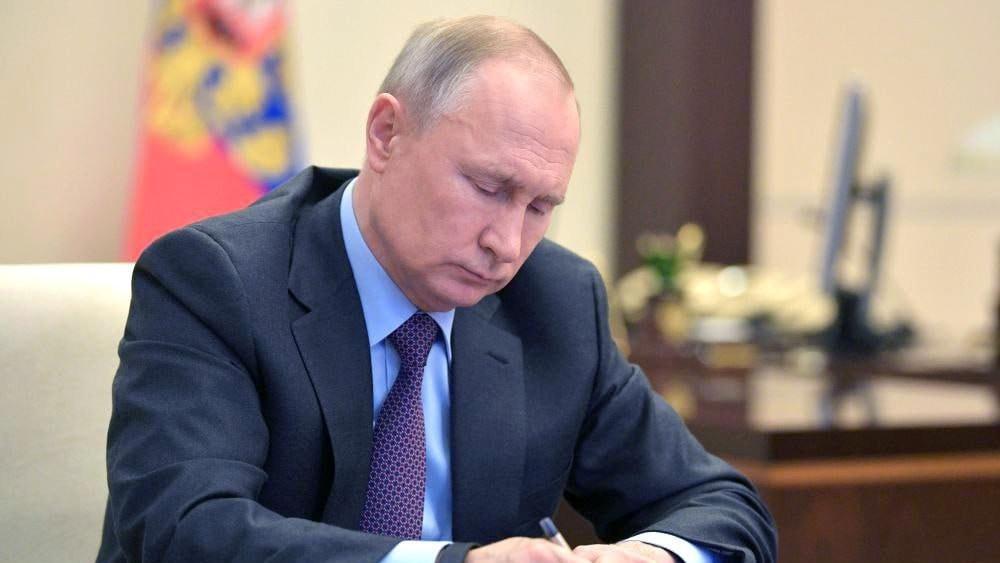
The Kremlin said that Russian President Vladimir Putin and U.S. President Donald Trump discussed a new potential prisoner swap between the two countries and were both in favour of normalizing ties, massively soured by Moscow's Ukraine offensive, during a two-hour call on May 19.
The leaders spoke for the third time since Trump took office this year in a call mostly focused on resolving the three-year Ukraine conflict.
Trump said on May 19 that Russia and Ukraine will “immediately” begin ceasefire negotiations after what he described as an “excellent” call with Putin.
Kremlin aide Yuri Ushakov said the pair had discussed "swapping nine people for nine people," without giving any details on which prisoners.
Russia and the United States have held several prisoner exchanges in recent years, with the biggest East-West swap taking place last year.
Ushakov said Putin and Trump were in favour of improving Moscow-Washington ties.
"Both expressed they were in favor for the further normalization of ties," he said.
The United States imposed huge sanctions on Russia for its 2022 Ukraine offensive.
The Kremlin also said that Putin had discussed issues around Iran, one of Moscow's allies, with Trump, as tensions soar between Tehran and Washington.
Putin said on May 19 following the two-hour phone call with Trump that Moscow is ready to work toward ending fighting in Ukraine.
"It was very informative and very open and overall, in my opinion, very useful," Putin told Russian media after the call.
He also said that Russia and Ukraine would need to find compromises to suit all parties.
The United States agreed to "tightly coordinate" Ukraine talks with European partners following the Trump-Putin call, the German government said.
Immediately after his conversation with Putin, Trump held a second call with Ukrainian President Volodymyr Zelensky, French President Emmanuel Macron, Finnish President Alexander Stubb, German Chancellor Friedrich Merz, Italian Prime Minister Giorgia Meloni and EU chief Ursula von der Leyen.
The readout of the call provided by Merz's spokesman said that the leaders "spoke to each other about the next steps" and "emphasized their willingness to closely accompany Ukraine on the path to a ceasefire."
Trump has directed much of his frustration towards Ukraine, including during a blazing Oval Office row with Zelensky in February, while abstaining from extensively criticizing Putin.
The White House declined to take sides, with Press Secretary Karoline Leavitt saying the president has "grown weary and frustrated with both sides."
Trump still hoped to meet Putin, she added, after the U.S. president said that face-to-face talks were the only way to end the conflict.
Trump had held out the possibility of joining Russia-Ukraine peace talks in Istanbul last week if there was a chance of meeting Putin, but the Russian leader was a no-show.
Moscow insisted it would prefer to end the conflict through diplomacy.
"It is preferable to achieve our goals through political and diplomatic means, of course," Kremlin spokesman Dmitry Peskov told state media, adding that Russia "highly valued" Washington's attempts to end the fighting.
Zelensky refreshed his push for a full ceasefire ahead of the call.
"Ukraine insists on the need for a full and unconditional ceasefire in order to save human lives and to establish the necessary foundation for diplomacy," he said on social media.
The Istanbul talks were the first direct negotiations between the sides for three years, with US officials also attending. But the meetings ended without a commitment to a ceasefire.
Both sides traded insults, with Ukraine accusing Moscow of sending a "dummy" delegation of low-ranking officials.
After the negotiations, Trump announced that he would speak by phone with Putin in a bid to end the "BLOODBATH" in Ukraine, which has destroyed large swathes of the country and displaced millions of people.
Ukraine's Western allies have since accused Putin of ignoring calls for a truce and pushed for fresh sanctions against Russia.